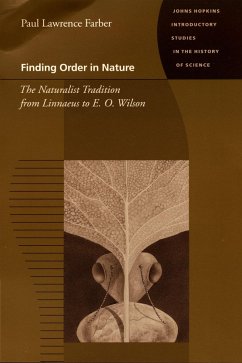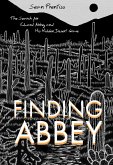"Engaging ... a concise work that gives the general reader a solid understanding ... an excellent introduction to the history of natural history." -Library Journal Since emerging as a discipline in the middle of the eighteenth century, natural history has been at the heart of the life sciences. It gave rise to the major organizing theory of life-evolution-and continues to be a vital science with impressive practical value. Central to advanced work in ecology, agriculture, medicine, and environmental science, natural history also attracts enormous popular interest. InFinding Order in NaturePaul Farber traces the development of the naturalist tradition since the Enlightenment and considers its relationship to other research areas in the life sciences. Written for the general reader and student alike, the volume explores the adventures of early naturalists, the ideas that lay behind classification systems, the development of museums and zoos, and the range of motives that led collectors to collect. Farber also explores the importance of sociocultural contexts, institutional settings, and government funding in the story of this durable discipline. "The history of natural history can rarely have been as succinctly told as in Paul Lawrence Farber's 129-pageFinding Order in Nature. From the intellectual revolutions of Linnaeus and Darwin through the Victorian obsessions with classifying and collecting, to the conservationists led by E. O. Wilson, it is an odyssey beautifully told." -New Scientist "Farber does an impressive job of demonstrating how practitioners like Linnaeus, Buffon, Saint-Hilaire and Cuvier advanced the field and set the stage for the development of science as we know it today." -Publishers Weekly
Dieser Download kann aus rechtlichen Gründen nur mit Rechnungsadresse in A, B, BG, CY, CZ, D, DK, EW, E, FIN, F, GR, HR, H, IRL, I, LT, L, LR, M, NL, PL, P, R, S, SLO, SK ausgeliefert werden.









